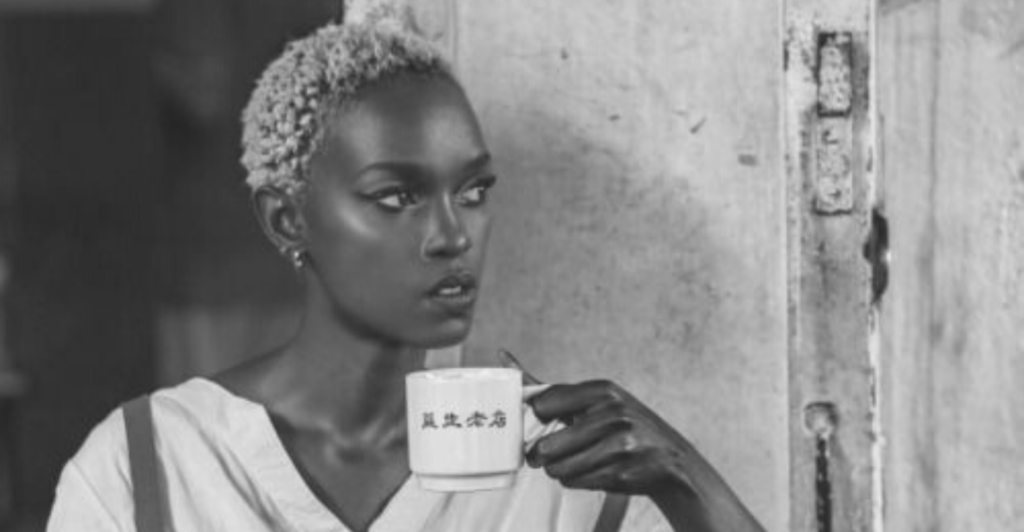I started my day like most. I unlocked the office doors and put on a pot of coffee (which I usually drank black). I grabbed the morning news from outside and sat at my desk submerged in darkness. I came in earlier than most people, partly because I was editor, but also because I wanted to prepare for another day filled with anxiety.
As any news reporter could tell you, the newsroom is filled with high stakes pressure at times and honest political conversations. The best offices are ones where you can sit in a Socratic circle and thrash out educated opinions concerning the current state of affairs. Of course, Trump was just elected that year, so there was plenty to debate.
This openly political environment wasn’t new to me because I had taken several advanced political courses in high school. We would adventure more into the basics of the diverse political spectrum of all countries and nations. The banter would be light-hearted as many of us minority students hadn’t realized we had such a large stake in the system.
As a college sophomore, I had taken numerous amounts of hours studying sociology from a conflict perspective. I was well versed in the intricacies of systemic racism bred by overt racism over time.
In the newsroom, I thought “this is the perfect place for me to divulge, they’re educated!” I was wrong. I hadn’t realized that though educated people are less likely to be racist, I did not put together that I was living in an extremely white, republican state: Oklahoma. A state where education will always leave out pertinent information about it’s past (and even present) racist happenings.
The Tulsa Massacre (formerly known as the Tulsa Race Riot) was left out of our history books in high school for so long. It should have been clear.
Still, as I eagerly shared a few points from my sociology class regarding race, I was met with a grimace from a white colleague, “Why is everything always about race to you?” He put this very bluntly. His pale arms crossed, creasing the sleeves on the dress shirt he was wearing.
The newsroom sat quietly in our circle. Most people didn’t bother to continue the conversation and even left the room altogether. We began a heated debate where I considered the importance of race relations as a factor for most social situations. “If you’re working on a story, how likely is it that you would interview a black person?” I questioned him and my supervisor.
I was one of two Black people in the office and my superior, a 60-year-old long term political news reporter, loved to play devil’s advocate. He had a potbelly and resembled a jolly Santa Clause. He would tip his glasses and smirk his thin lips and offer a retort. Many of the arguments after that day were me against those two white males.
For a while, I felt so defeated. I could write news feature after news feature, editorial after editorial jam-packed with facts and credible sources yet, still fail to be acknowledged. I was editor, but no one would read my work or EDIT prior to print day. I felt like a token black girl selected for the role of editor simply to say “Hey, we got one!’
A study by Harvard Professor Edward H. Chang revealed that being chosen or choosing to be in an environment as a token impacts people psychologically. It revealed that women in higher positions are often seen as less competent than their male counterparts. So when I raised these issues in each editorial I was compared to my one Black coworker for being too argumentative.
This doubt I received from my superior, despite being chosen for the role, made me feel like I was chosen only for my skin color. Being extremely light skinned I also felt he chose to recruit me for the newspaper overall because I was “safe.”
Being a safe Black made me feel like I had to re-shape my identity as a black woman and turn up my blackness. I wanted to show them that I was black enough to have a strong opinion regarding anti-Black issues. This is why I chose to focus on only Black issues, I was drowning in the expectation that because I am light skinned I was less likely to take a stand on racism.
Regardless of the ideals placed on my shade I understood that the issues surrounding all black people is the idea that we are expected to assimilate to white culture in all industries in order to get ahead. For example, think of Molly from the HBO series by Issa Rae. Molly was a dark skinned black woman who felt the need to code switch to get ahead in her law career.
Black people, especially black women, deal with the whiteness in their industry differently in order to navigate a system ultimately created against us. Another colleague in her law office refused to code switch and was ultimately asked to resign.
These expectations to either conform or stand out are the reasons safe black people exist. White people hire safe black people who appear either docile or lighter skinned in order to seem like they are diverse. So being a light skinned woman with a platform I felt it was imperative I went against the expectations and spoke out against racist ideals, which pissed off a lot of people.
One day I came into the office early. I was learning more about redlining and the historical denial of housing loans for blacks. In Oklahoma, this is still a major issue and gentrification, like in most major cities, is affecting the minority populations.
I got my information together and wrote a strong editorial surrounding Oklahoma’s history of redlining and submitted it. He rolled his eyes and gestured to me to have a seat.
He was displeased with my hard work focusing on matters important to me as a black woman. Yet, Samantha was over here writing about the Bees dying off and Madeline spotlighting a local white family’s lawn care business.
I had always pushed myself academically as a child. I won science awards, got the highest grades in all my classes, and took advanced placement classes in high school. I was so determined to show the white teachers that I was worth an education. The same way I tried to work hard to show my superior and colleagues I was worth the title of editor.
In the end, I tapped out. I became depressed and detached. I was reminded that once again, I was not good enough for white men even though I had worked ten times harder to vet my work.
Today, I still haven’t felt like working alongside white men in any capacity because I know as a black woman, they will undermine my authority and my experience unless I go out of my way to truly prove myself. I don’t want to move through life as a quiet voice in the shadow of a white man for fear of being questioned.
Being black in the office doesn’t mean we have to conform to anyone’s ideas of us. We don’t have to be extremely structured and successful to determine our worth. We are people who deserve to shape our lives based on what we deem acceptable. I encourage black people venturing into predominantly white industries to understand the psychological toll of working in those environments. Perhaps consider looking into small companies are going to make you feel like you have a sense of belonging and respect.
Despite working for an office that dismissed my values I am hopeful I’ll find an organization that suits me. There are organizations that will value our work and help us grow, while also seeing our skin color, we just have to take the time to find them.
Citations:
Can being the ‘token’ give women and minorities a competitive edge? (2020, October 27). Retrieved February 11, 2021, from https://hbswk.hbs.edu/item/can-being-the-token-give-women-and-minorities-a-competitive-edge
Being Black in Corporate America (2020) Retrieved February 11, 2021 https://coqual.org/wp-content/uploads/2020/09/CoqualBeingBlackinCorporateAmerica090720-1.pdf

About the Author:
Savannah Melher, Strategic Communications Specialist, has spent two summers conducting research regarding race reporting in Oklahoma to understand the bias in print media.




JOIN THE DISCUSSION (0 comments)